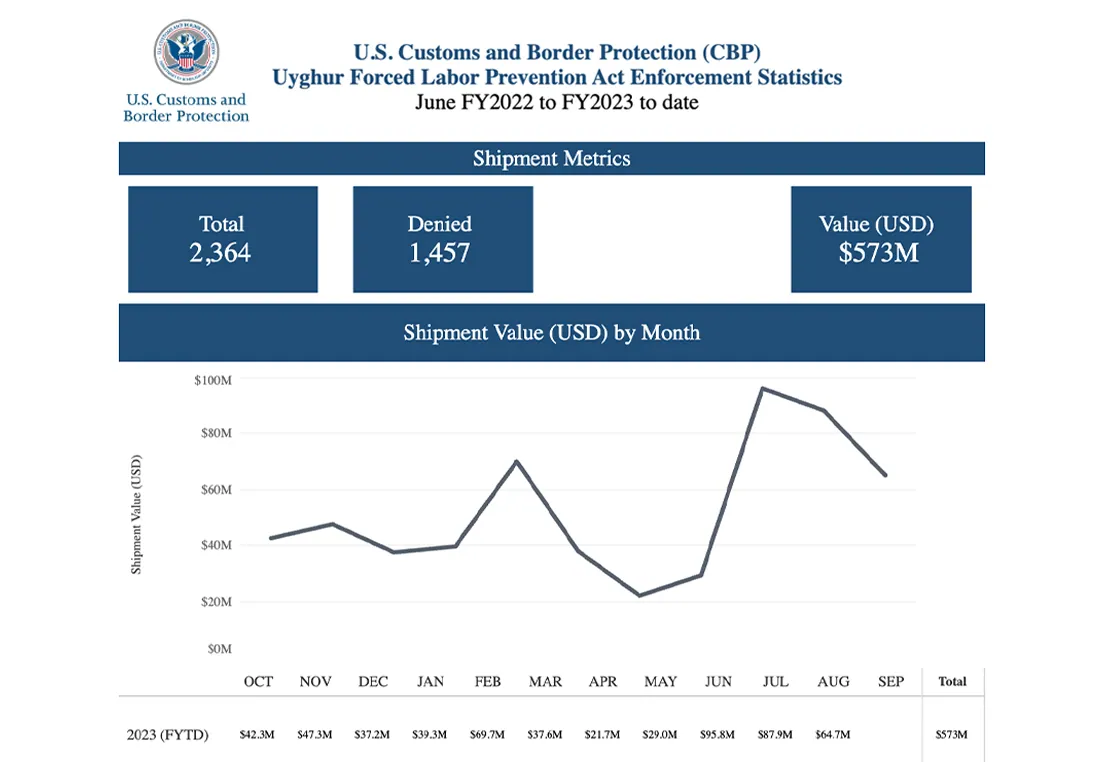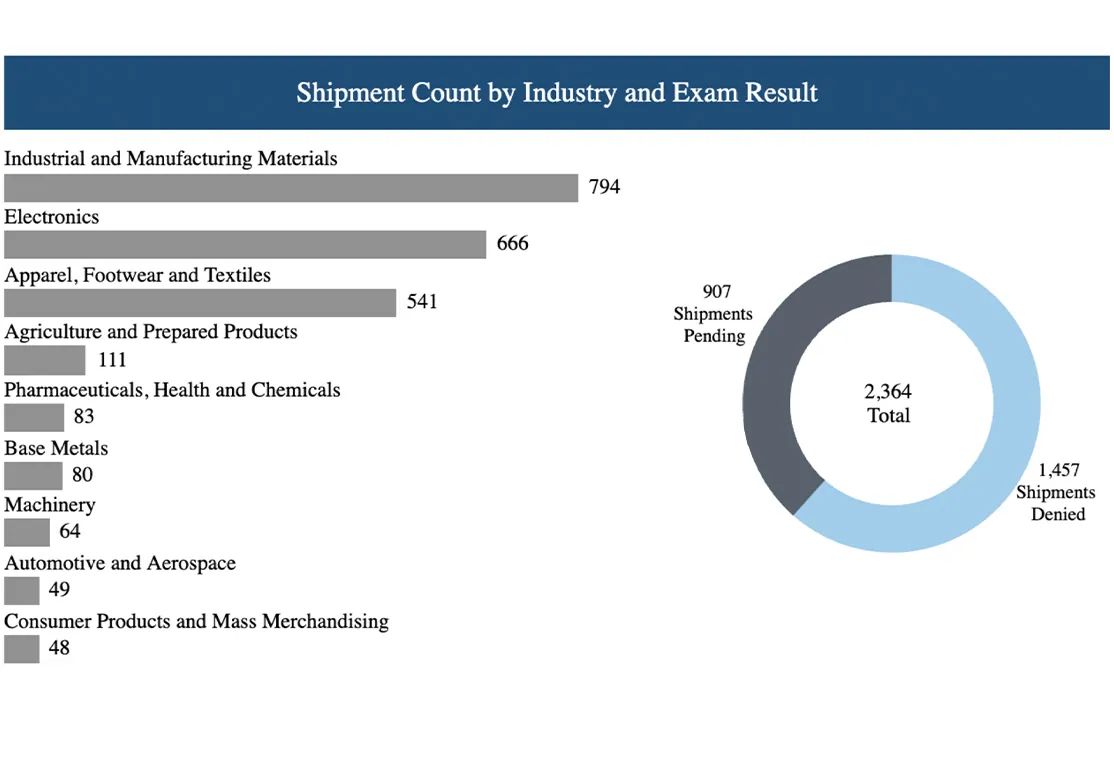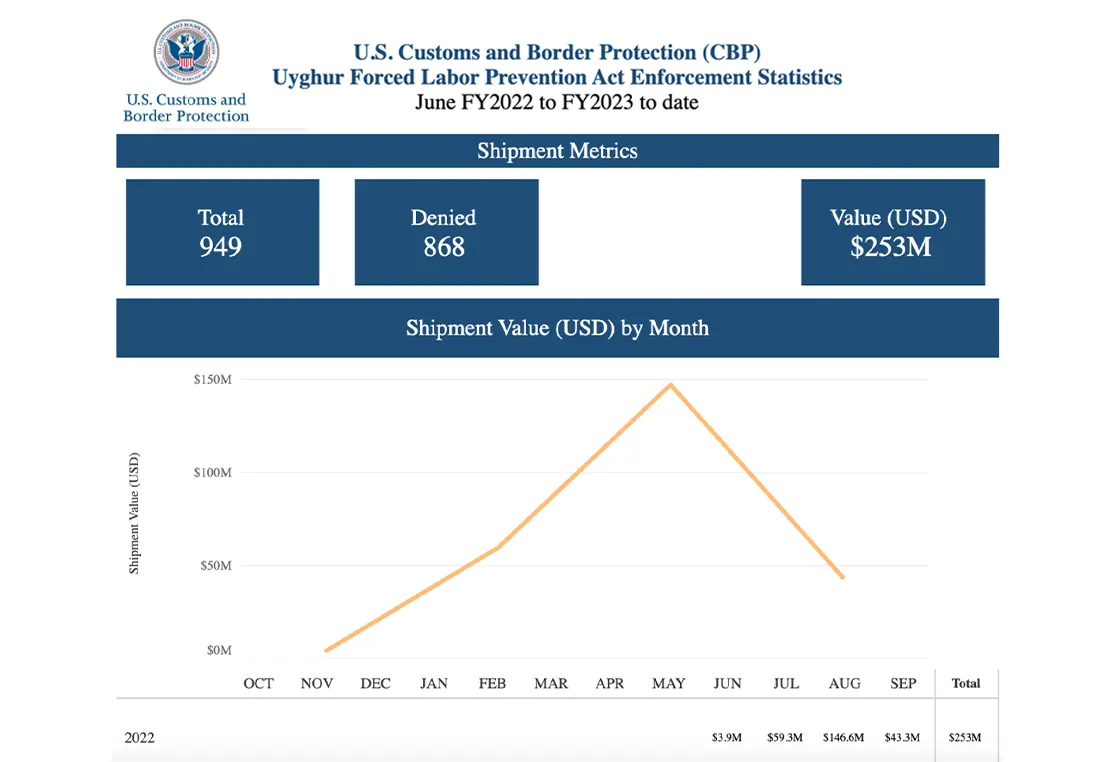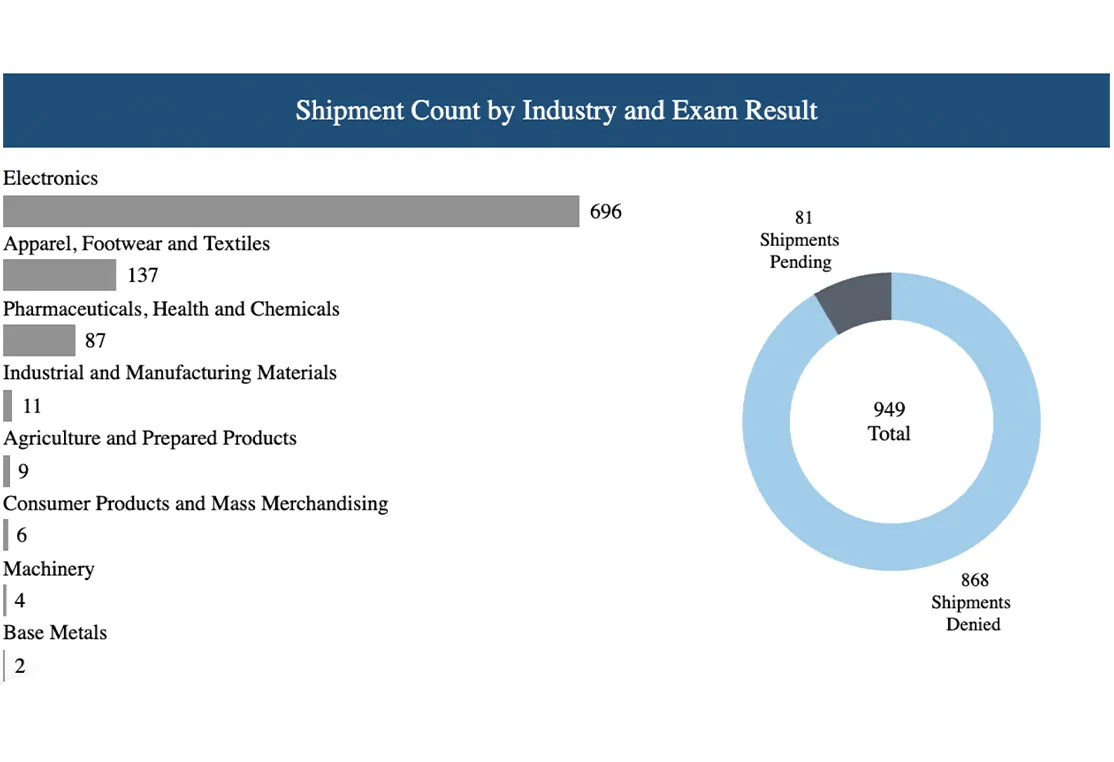Videos & Webinars
Watch videos featuring supply chain experts
The Uyghur Forced Labor Prevention Act, also known as the UFLPA, directs the Forced Labor Enforcement Task Force to develop a strategy for supporting the enforcement of the prohibition on the importation of any goods, wares, articles, and merchandise mined, produced, or manufactured wholly or in part made by forced labor into the United States made in Xinjiang Region of China. The UFLPA was enacted on December 23, 2021, with a June 21, 2022, effective date. President Biden signed the Act into law on December 23, 2021, after it passed with overwhelming bipartisan support in the United States Congress, underscoring our commitment to combating forced labor everywhere.
Task Force includes interagency partners that are dedicated to monitoring the enforcement of the prohibition on importing goods made wholly or in part with forced labor into the United States.
The Forced Labor Enforcement Task Force is composed of 7 member agencies. Member agencies include:
Prohibition on Imports: One of the primary provisions of the Uyghur Forced Labor Prevention Act is the prohibition on the importation of goods made in Xinjiang unless it can be demonstrated that they were not produced using forced labor. This provision reflects the U.S. government's commitment to ensuring that American consumers are not inadvertently supporting products made through exploitative labor practices.
Supply Chain Transparency: The act also calls for increased transparency in global supply chains. Companies doing business in Xinjiang or utilizing Xinjiang-produced materials are encouraged to conduct due diligence to ensure their operations are not linked to forced labor or human rights abuses.
Sanctions and Accountability: The legislation provides for the imposition of sanctions against individuals and entities involved in human rights abuses in Xinjiang. This includes freezing assets and imposing travel restrictions on those responsible for violations. These sanctions serve as a means of holding individuals accountable for their actions. Understanding what is sanction screening is essential in this context, as it involves the process of identifying and preventing transactions with these sanctioned individuals or entities, ensuring compliance with legal requirements.
Check out the list of entities in Xinjiang that mine, produce, or manufacture wholly or in part any goods, wares, articles, and merchandise with forced labor.
Here we can see the obstacle in trade shipments by the adaptability of this UFLPA act.
In 2023,


In 2022,


The Uyghur Forced Labor Prevention Act represents a significant step in addressing the ongoing human rights crisis in Xinjiang. Enacted into law in 2021, it showcases the U.S. government's commitment to combating forced labor and human rights abuses, similar to the US sanctions houthis. This act also highlights the importance of supply chain transparency.
As the international community grapples with how to respond to the Uyghur crisis, this act is a noteworthy development in the global effort to hold those responsible for human rights abuses accountable. Businesses are advised by governments to have sanctions compliance processes in place for due diligence surrounding restricted party screening.